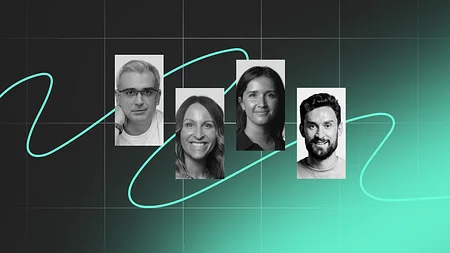Chris Woolard, FCA: The regulation sandbox goes global
In an exclusive interview for Fintech Insider, Jason Bates speaks to Chris Woolard, Director of Strategy and Competition at the FCA, all about their recent paper and announcement about their plans to take the regulatory sandbox global.
Fintech Insider was lucky enough to gain an exclusive interview with Chris Woolard, Strategy and Competitions Director at FCA, who is responsible for innovation, Project Innovate and the sandbox, ahead of their announcement of their plans to take the highly successful regulatory sandbox initiative global. In a paper released today they have outlined their thoughts on what this could look like. We spoke to Chris in the only media interview he's giving on this paper, to find out more.
Global issues calls for global regulation
Chris tells us that the impetus for looking to go global for the sandbox was a drive to "work out solutions that work around the world, not just for the UK". He highlights the fact that not only do a lot of companies want to test their propositions in a lot of international markets at once, and that across their 4 cohorts to date, over 30 applications have been from international companies, but also there is willingness from regulators themselves to work together. He highlights that all regulators around the world have the same concerns, such as counter terrorist finance, anti money laundering and other global issues that themselves are not confined within boundaries, but the international regulators often have different approaches. He questions "if things are fragmented, how effective are the controls?" - in his view regulators need to begin to work together on an international scale. Likewise, for small companies just starting out, there are high costs and friction running tests and getting regulated per country of operation, running an international sandbox will help companies get to market faster, grow at scale and get to market in multiple markets at once rather than taking a piecemeal approach."If things are fragmented, how effective are the controls?" - Chris Woolard
Today's white paper
As such the FCA have released a paper today laying down how they think a global sandbox could work, and the benefits to companies, fellow regulators and ultimately the consumer. This initiative is in its early stages, in Chris' words it's a "green paper" just putting forward ideas and initiating the conversation, with the impetus on engaging others "not dictating". The next steps is a period of research with fellow regulators worldwide and interested firms who might want to take part and test initiatives across multiple jurisdictions at once, with more announcements to come in Spring 2018 after this investigative period. This period allows them to ask the important question: "Is there the appetite among international regulators to work together?""Is there the appetite among international regulators to work together?"
The rise of Regtech
50,000 companies regulated have to submit their reporting by means of forms and paperwork to the FCA but Jason points out that surely the future is APIs, data and machine learning? Chris concurs saying that this global approach to the sandbox will also help them work together regulating and learning from other international regulators as they implement this. "[Reg tech is a] really interesting space for cost, efficiency and speed of response". He also says that the data collected and collated from reg tech can allow them to adapt and change up how they used analytics "to do our job better". A specific example of this would be using automation and machine learning to faster pinpoint and source misconduct."[Reg tech is a] really interesting space for cost, efficiency and speed of response".
Guiding principles of the sandbox
When recapping the successes of the sandbox to date, Chris tells us that the guiding principles behind it have always been to give startups and companies a safe space to test in. he tells us start ups have historically tried to avoid regulation and they've been concerned about getting tied up in red tape and find regulators inaccessible. The sandbox serves to break down those barriers, allow companies to test their propositions and share ideas, and their aim is to make dealing with FCA as easy and friendly as we can. In Chris' view this is a benefit to both the regulators "It gives us the chance to do things we've never done before" and likewise the companies themselves: "people are challenging the status quo to do things better." However he says that the biggest guiding principle of Innovate and the sandbox is always the question: Is it in the interests of consumers?"People are challenging the status quo to do things better."
Lessons learned
The FCA's sandbox in the UK is currently on its 4th cohort in 3 years, Chris lets us into the biggest lessons learned to date from the initiative.- The surprising number of companies that do go to market as a result of the sandbox testing period - at least 90%
- The importance of testing and proof of concept and how good this is for companies to show interested VCs
- The number of bigger companies beginning to use the sandbox - at the beginning early innovation was about fintechs but big organisations are now getting involved.
- Role FCA can play building confidence around the market by safe secure testing




